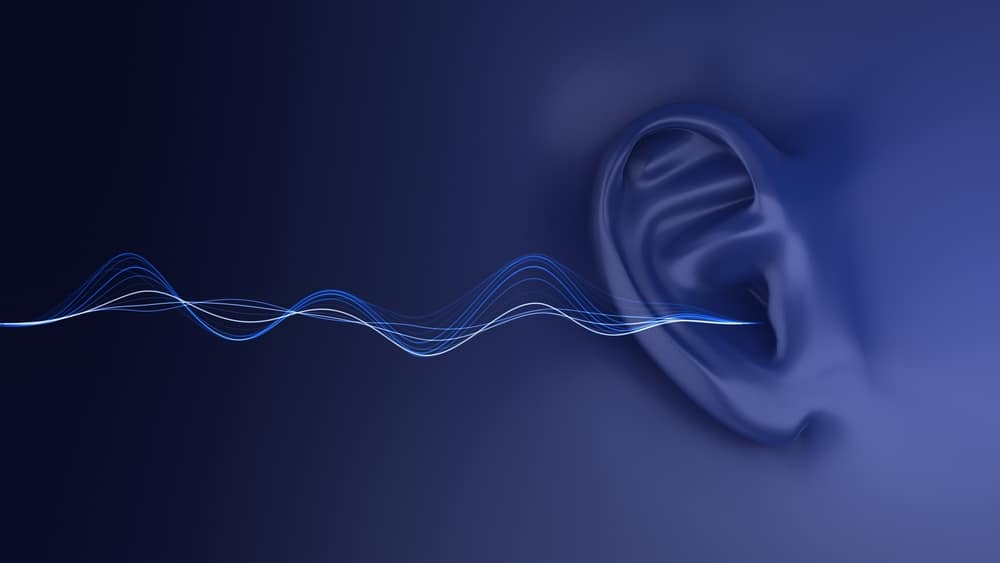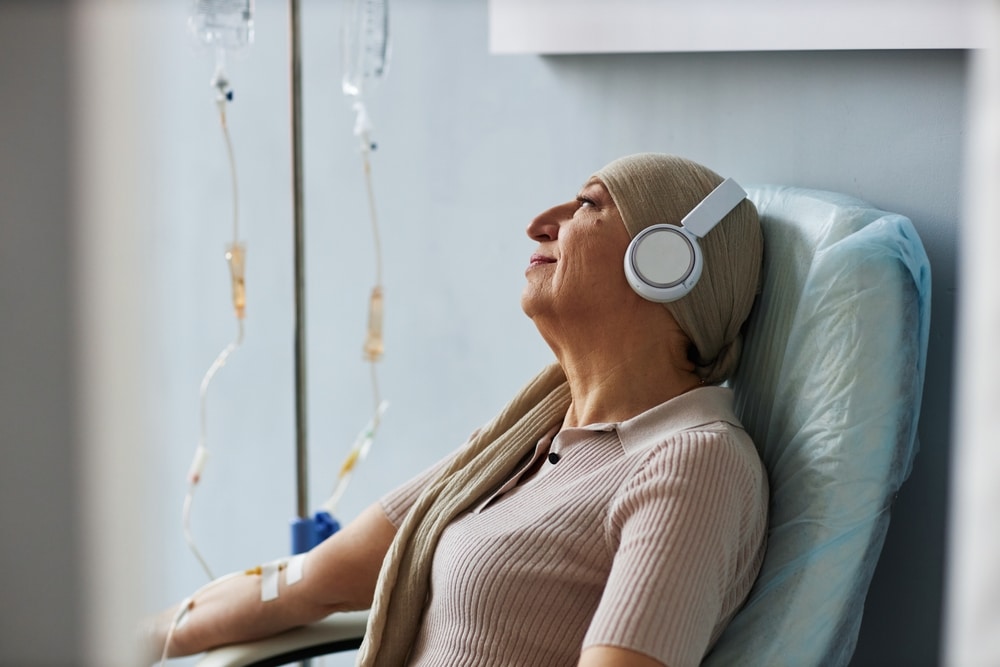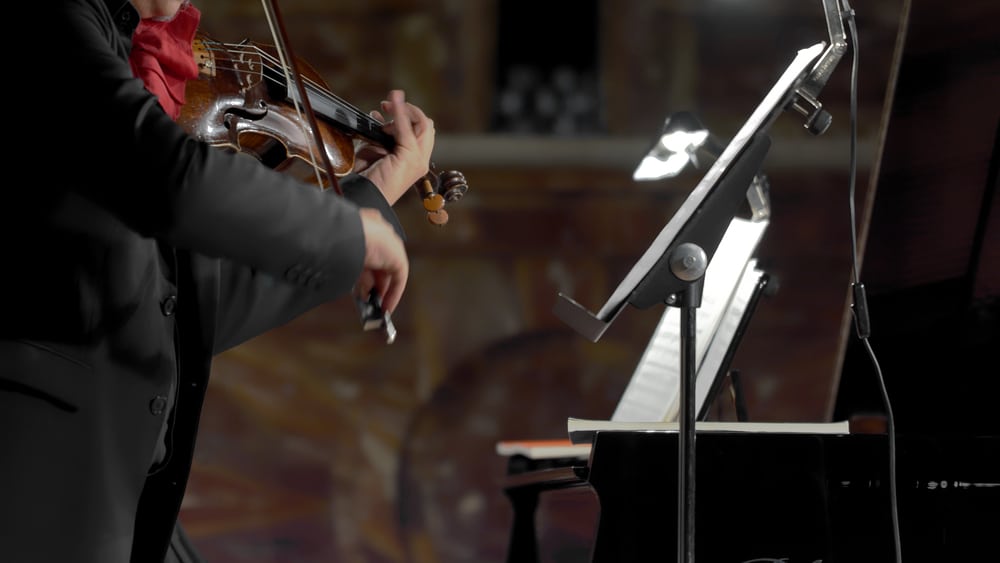Beethoven’s 5th Destroys 20% of Cancer Cells Without Harming Healthy Ones, Study Finds
Last updated on
Could a Beethoven symphony really kill cancer cells? It sounds like something out of a movie, right? We all love the idea of a simple, elegant solution to a complex problem. So when a story like this pops up, it’s no wonder it gets a ton of buzz. But before we get too carried away and start prescribing symphonies, let’s dig into what the science really says. We’ll break down the original study, separate the facts from the fiction, and explore how music can genuinely—and powerfully—play a role in your health.
What’s the Real Story Behind the Science?
Where did this whole thing come from? It all started with some legitimate research by Dr. Márcia Alves Marques Capella and her team in Brazil. They were curious about the physical effects of sound on cells. In their lab, they took human breast cancer cells, placed them in a petri dish (in vitro, which just means “in glass”), and exposed them to the famous first movement of Beethoven’s Symphony No. 5.
And what happened? Some of the cancer cells did, in fact, die off. This is an interesting finding for sure. But here’s where the story took a wild turn. The viral headline claiming a specific “20% of cancer cells” were destroyed? It’s just not true.
The science doesn’t back it up. Dr. Capella herself has repeatedly tried to set the record straight, stating, “The methods we used did not allow us to quantify cellular death.” That 20% number was basically made up by someone else, got repeated, and then went viral online.
And the part about healthy cells being totally fine? That’s another big stretch. The study used a cell line from a dog’s kidney as a non-cancerous comparison. While those cells were unaffected, you can’t just assume the same would be true for every type of healthy human cell in the body. Lab science is all about specifics, and this is a classic case of how a small, interesting finding can get blown way out of proportion.
How Can Sound Even Affect a Cell?

You might be wondering, “How can sound possibly affect a cell that doesn’t have ears?” It’s actually pretty cool, and it all comes down to a process called mechanotransduction. It’s a fancy word, but the concept is simple.
Think of it this way: sound waves aren’t just something we hear; they are physical vibrations traveling through the air or, in this case, the liquid in the petri dish. When those vibrations hit a cell, they literally shake it up. It’s like a mini-earthquake on a microscopic level. This physical jolt can stress the cell’s outer membrane and internal structure, triggering a response. In some very specific cases, for some very specific cells, that stress is enough to flip a switch that tells the cell to self-destruct (a natural process called apoptosis).
So, to be super clear, the cells aren’t “listening” to the music and having an emotional reaction. It’s a straight-up physical phenomenon, much like how a powerful opera singer can shatter a wine glass by hitting just the right resonant frequency.
Using Music to Feel Your Best: Some Easy Tips

Okay, so Beethoven probably isn’t a miracle cancer cure. But don’t discount the power of music just yet. Music therapy is a real, science-backed field that helps people feel better every single day. The benefits are profound, and you don’t need a prescription to get them. Want to use music to boost your own well-being? Here are a few simple tips to get you started:
- Chill out and de-stress: Feeling stressed? We all do! When that happens, your body releases a hormone called cortisol. A little is fine, but too much leaves you feeling frazzled and can impact your health. Putting on a playlist of your favorite calming tunes is a scientifically proven way to lower those cortisol levels, slow your heart rate, and deepen your breathing. Just 15 minutes can be enough to interrupt that stress cycle and make a world of difference. Try it during your commute, on your lunch break, or whenever you feel the pressure building.
- Ease the pain: Music is a fantastic, drug-free tool for pain management. How? It works in two ways. First, it’s a great distraction. Your brain can only focus on so many things at once, and engaging music can actually crowd out pain signals. Second, listening to music you love can get your body to release its own natural painkillers, called endorphins. This is why it’s often used in hospitals to help patients manage post-surgery pain or discomfort from chronic conditions.

- Get pumped up: Need a mood boost or some motivation for a task you’re dreading? Crank up some upbeat music. Fast-tempo, high-energy songs can trigger the release of dopamine in your brain—the “feel-good” chemical. This makes it perfect for getting you energized for a workout, powering through house chores, or just making a tough day a little brighter. Try making a “power playlist” to kickstart your Monday mornings.
- Sleep better: If you struggle to quiet your mind at night, a little soothing instrumental music before bed can work wonders. It helps signal to your body that it’s time to wind down. Pro-tip: skip the songs with words. Lyrics can activate the language centers of your brain, keeping your mind active when you’re trying to fall asleep. Think ambient music, classical piano, or even nature sounds.
- You do you: This is the most important rule. There’s no “best” music for relaxation or motivation. The therapeutic effect is deeply personal. What one person finds calming, another might find boring or even irritating. The benefits come from the emotional connection you have with the music. So go ahead and enjoy your favorite tunes, whether it’s classical, country, rock, or pop!
The Real Deal with Sound-Based Cancer Treatments

Now, using sound to actually fight cancer isn’t just a myth—it’s a real and exciting area of medical tech. But we’re talking about something way more advanced than just playing a song. These are highly precise medical procedures.
For example, there’s Sonodynamic Therapy (SDT). This is a clever two-step process. First, a patient is given a special, non-toxic drug that is designed to gather inside tumor cells. Then, doctors aim low-intensity focused ultrasound at the tumor. The sound waves act like a key, “unlocking” the drug’s cancer-fighting power right where it’s needed, which produces reactive oxygen species that kill the cancer cells while leaving healthy tissue alone.
Another cool one is Histotripsy, which uses powerful, focused ultrasound pulses to create tiny, controlled bubbles inside a tumor. The rapid expansion and collapse of these bubbles acts like a microscopic jackhammer, physically destroying the tumor tissue without heat or radiation. These technologies are the real future of “sonic medicine,” and they show how the physical power of sound can be harnessed in an incredibly precise way.
The Takeaway: Think Critically

So, what’s the bottom line here? The whole Beethoven-and-cancer story is a perfect example of how a tiny piece of early science can get twisted into a huge viral myth. It’s a great reminder to always be a little skeptical of amazing health headlines you see online, especially when they promise easy fixes.
The true story is that while music won’t magically cure diseases, it’s an amazing and accessible tool for helping people feel better, manage stress, cope with pain, and get through tough times. And that’s a power that’s just as incredible, don’t you think?
Source:
- Lestard, Nathalia & Capella, Márcia. (2016). Exposure to Music Alters Cell Viability and Cell Motility of Human Nonauditory Cells in Culture. Evidence-Based Complementary and Alternative Medicine. 2016. 1-7. 10.1155/2016/6849473.
- Raymond, S. (2025, June 16). Debunked: A study into music’s effect on cells doesn’t show Beethoven’s 5th can “fight cancer.” TheJournal.ie. https://www.thejournal.ie/factcheck-debunked-can-music-fight-cancer-research-into-beethoven-and-cancer-cells-6731601-Jun2025
Some of the links I post on this site are affiliate links. If you go through them to make a purchase, I will earn a small commission (at no additional cost to you). However, note that I’m recommending these products because of their quality and that I have good experience using them, not because of the commission to be made.





























 JOIN OVER
JOIN OVER
Comments